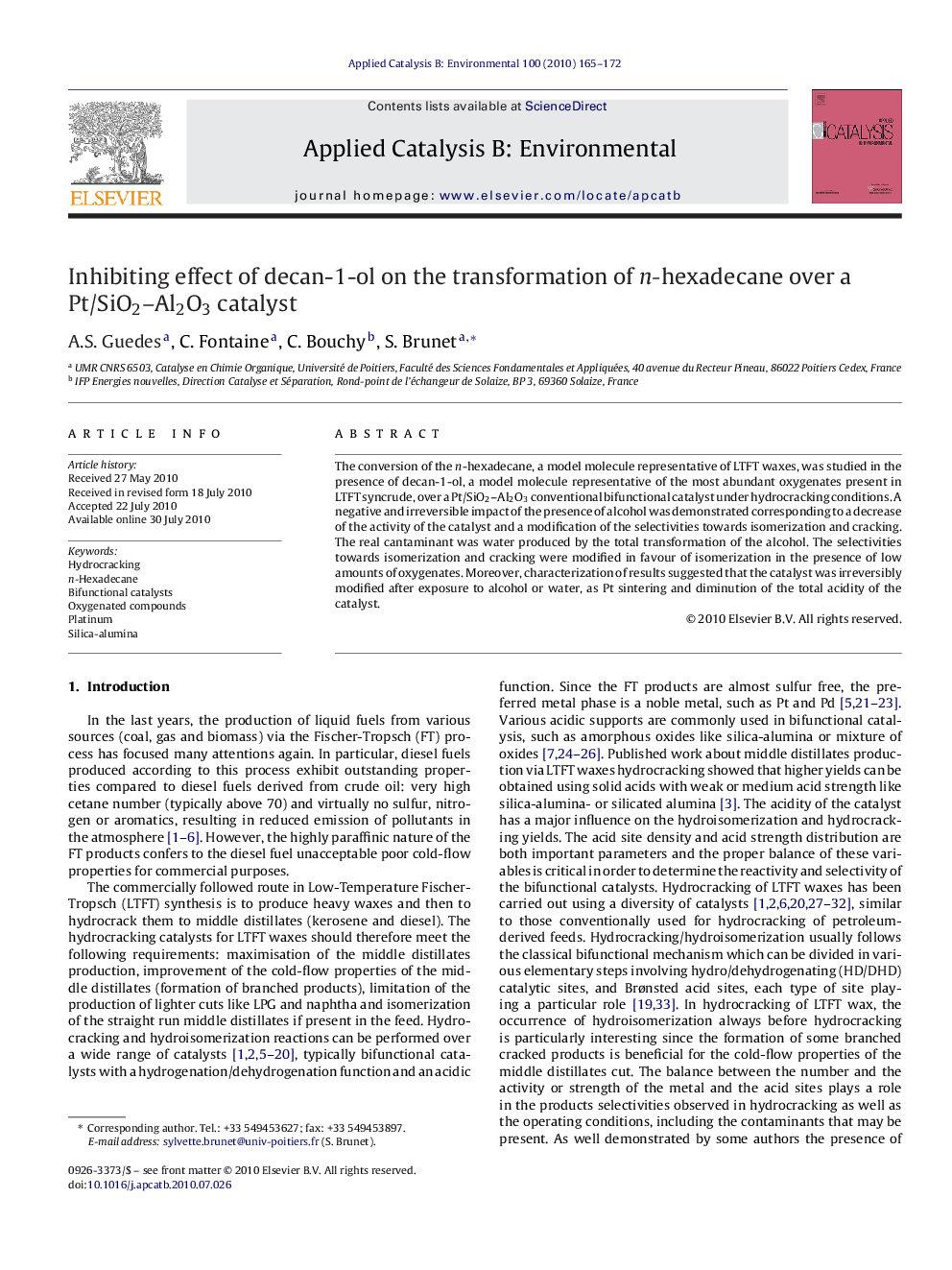| Article ID | Journal | Published Year | Pages | File Type |
|---|---|---|---|---|
| 47155 | Applied Catalysis B: Environmental | 2010 | 8 Pages |
The conversion of the n-hexadecane, a model molecule representative of LTFT waxes, was studied in the presence of decan-1-ol, a model molecule representative of the most abundant oxygenates present in LTFT syncrude, over a Pt/SiO2–Al2O3 conventional bifunctional catalyst under hydrocracking conditions. A negative and irreversible impact of the presence of alcohol was demonstrated corresponding to a decrease of the activity of the catalyst and a modification of the selectivities towards isomerization and cracking. The real cantaminant was water produced by the total transformation of the alcohol. The selectivities towards isomerization and cracking were modified in favour of isomerization in the presence of low amounts of oxygenates. Moreover, characterization of results suggested that the catalyst was irreversibly modified after exposure to alcohol or water, as Pt sintering and diminution of the total acidity of the catalyst.
Graphical abstractFigure optionsDownload full-size imageDownload as PowerPoint slideResearch highlights▶ decrease the activity of a conventional Pt/silicated alumina catalyst for the n-hexadecane hydroconversion by the presence of decan-1-ol in the feed. ▶ water real contaminant. ▶ irreversible modification of the acidic and metallic functions of the catalyst.
